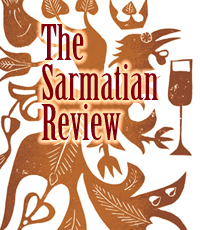| This Issue | Back Issues | Editorial Board | Contact Information |

Our Take - American Catholicism and Polish Americans
September 2005
Volume XXV, No. 3
John Paul II’s legacy is both spiritual and worldly. Leaving aside things spiritual, we shall consider the worldly. Will his legacy enable American Catholicism to incorporate Polish Catholic presence into church customs, ecclesiastical appointments, and the canon of texts to be studied, sung, and taught in America’s Catholic churches and parochial schools? In January 2004, Our Take wrote about the lack of Polish Americans’ visibility in these areas. With a few exceptions, the Polish American clergy seem relegated to the least visible parishes in the remotest corners of the continent, and Polish Catholic customs are studiously ignored by the Irish-German-Italian ecclesiastical structures. A few years ago, while visiting Squamish, British Columbia, an industrial town of several thousand Anglo and Indian inhabitants, we found a Polish American priest. His presence seemed symbolic of the use made of Polish Catholic clergy in this country. A well-known Catholic publishing house recently turned down a novel by Kazimierz Braun of SUNY-Buffalo (the novel’s protagonist was modeled on John Paul II as a young man, and the place of action was Poland and America), because the topic was too “exotic” for an American audience. When we look at the chanceries of American dioceses or the editorial boards of Catholic periodicals-we find a scarcity of Polish names and Polish Catholic presence.
And yet, both in Poland and in America, Polish Catholicism remains one of the most vital Catholic centers in the world. Granted, much needs improving there, but much is also to be admired and learned from. Americans of Polish background have brought some of that Catholic spirit to these shores. Poland has produced Catholic writers that compare favorably with contemporary American Catholic writers (we provide a “sound bite” of Michael Zioło in this issue). Why, then, are they so glaringly absent in Catholic structures in the United States and Canada?
It seems to us that there are several reasons. First, American Catholics tend to believe that Catholicism begins and ends in America, that what is going on in the Catholic Church here is of primary importance elsewhere, from the Vatican to the villages of sub-Saharan Africa. This attitude begets another, namely, that only the English, German, and other Western European heritage in Catholicism is worth preserving. Thus American conservative Catholics bashed John Paul II for not devoting most of his time to disciplining unorthodox bishops in America, whereas liberal Catholics demanded that the Pope devote his time to pondering such issues as the all-male priesthood. Such demands are pathetically provincial, yet the leaders of American Catholics seem unable to understand that.
Second, even though Catholics constitute one-fourth of the U.S. population, they are marginalized in American society. The Protestant beginnings of America are loudly proclaimed in schools and scholarly books (Charles Carroll notwithstanding), and Protestant virtues supposedly lie at the foundations of America’s success (notwithstanding the fact that in the sixth century, St. Benedict taught Europe how to work- ora et labora-and “Benedictine industriousness” became proverbial in several European languages). American intellectual life is conducted almost entirely outside the Catholic parameters. The representative intellectual publications stand miles away from Catholicism, while American universities employ few practicing Catholics in their humanities divisions. Catholics may be a quarter of the population, but practicing Catholics on the humanities faculties at leading universities are less than one percent of the faculty.
Being a subculture carries a price tag. Part of this price is a desire to be recognized and accepted on equal terms. If Catholics are a subculture in America, Polish Catholics are a subculture of a subculture. The Catholics of Western European background have a hard time being accepted as equals: they strive to be so accepted, rather than to be fair toward their fellow Catholics.
The fact is that Polish Catholics have been demonstrably marginalized within the Catholic Church in America. It remains to be seen whether John Paul II’s legacy will make a difference in this regard. ∆
Back to the September 2005 Issue
The Sarmatian Review
sarmatia@rice.edu
Last updated 7/29/05